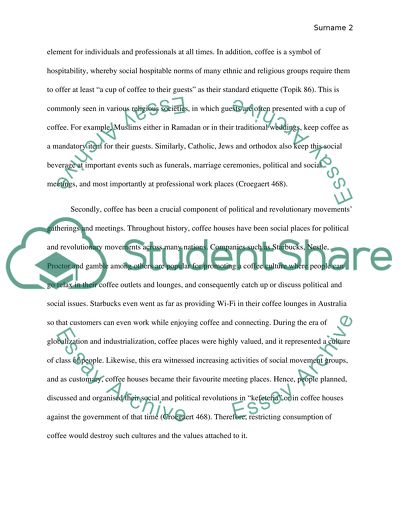Cite this document
(“COFFEE TRENDS Essay Example | Topics and Well Written Essays - 1000 words”, n.d.)
Retrieved from https://studentshare.org/english/1473563-coffee-trends
Retrieved from https://studentshare.org/english/1473563-coffee-trends
(COFFEE TRENDS Essay Example | Topics and Well Written Essays - 1000 Words)
https://studentshare.org/english/1473563-coffee-trends.
https://studentshare.org/english/1473563-coffee-trends.
“COFFEE TRENDS Essay Example | Topics and Well Written Essays - 1000 Words”, n.d. https://studentshare.org/english/1473563-coffee-trends.


